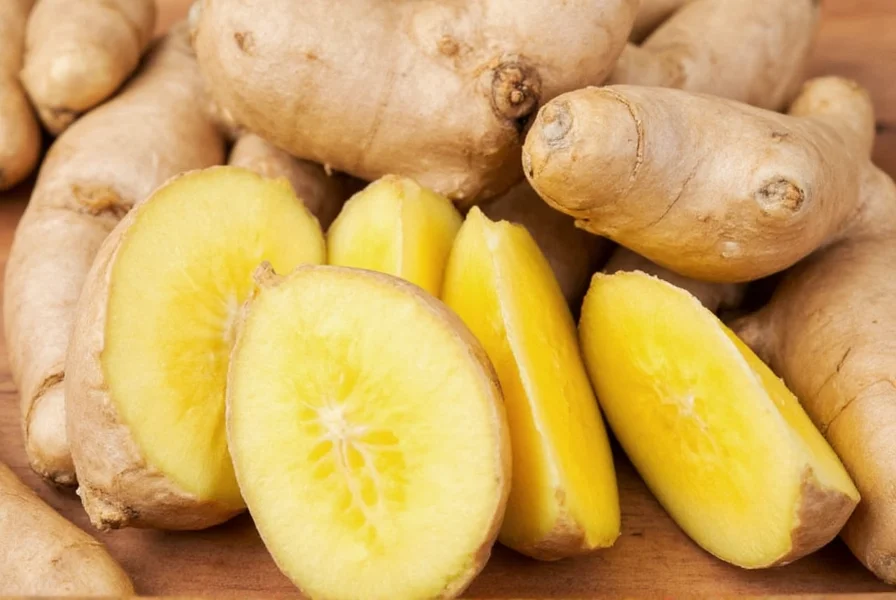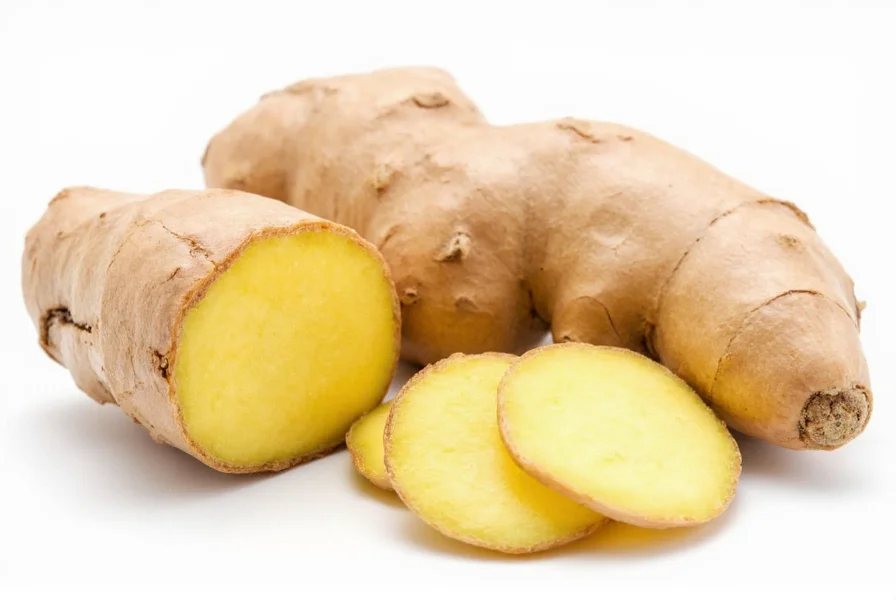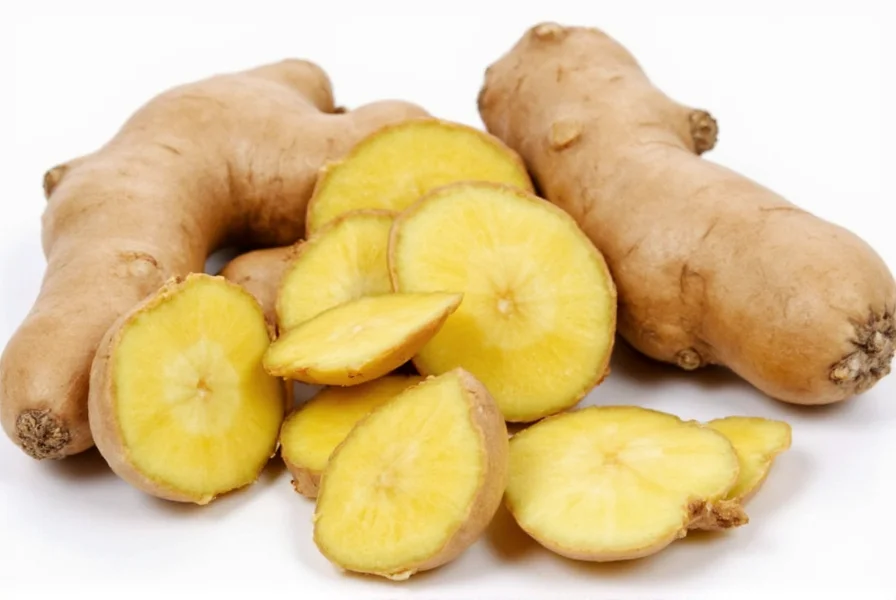Ginger root has earned its place as one of the most extensively studied herbal remedies in modern science. This ancient spice, cultivated for over 5,000 years across Asian cultures, continues to prove its worth through contemporary research. Unlike many traditional remedies that lack scientific backing, ginger stands out with robust evidence supporting its therapeutic applications, particularly for digestive health and inflammation management.
The Science Behind Ginger's Therapeutic Properties
What makes ginger so effective? The answer lies in its bioactive compounds, primarily gingerols and shogaols. These compounds give ginger its distinctive pungent flavor while delivering powerful physiological effects. Gingerols, the predominant compounds in fresh ginger, transform into shogaols when ginger is dried or heated, creating different but equally beneficial properties.
Multiple clinical trials have demonstrated ginger's effectiveness for various conditions. A comprehensive 2020 review published in Nutrients analyzed 109 studies on ginger's health effects, confirming its efficacy for:
- Nausea and vomiting reduction (particularly pregnancy-related and chemotherapy-induced)
- Muscle pain relief after exercise
- Osteoarthritis symptom management
- Digestive function improvement
| Condition | Effective Dose | Time to Effect | Research Confidence |
|---|---|---|---|
| Morning sickness | 1-1.5g daily | 24-48 hours | High |
| Postoperative nausea | 1g pre-surgery | During recovery | High |
| Muscle soreness | 2g daily | 24-48 hours | Moderate |
| Osteoarthritis | 0.5-1g daily | 2-4 weeks | Moderate |
Ginger's Role in Digestive Health
Ginger's most well-documented benefit relates to digestive health. Research shows it accelerates gastric emptying, which explains its effectiveness against indigestion and bloating. A study in the World Journal of Gastroenterology found that ginger reduced digestion time by 25% compared to placebo.
For those experiencing nausea, ginger works through multiple mechanisms:
- Modulating serotonin receptors in the digestive tract
- Reducing inflammation in the gastrointestinal system
- Calming stomach contractions
- Interacting with the brain's vomiting center
Unlike pharmaceutical anti-nausea medications, ginger typically causes fewer side effects, making it suitable for regular use. However, pregnant women should consult their healthcare provider before using ginger medicinally, especially during the first trimester.

Anti-Inflammatory and Pain-Relieving Effects
Ginger's anti-inflammatory properties stem from its ability to inhibit key inflammatory pathways. Research published in Arthritis & Rheumatism demonstrated that ginger extract reduced inflammatory markers by 28% in osteoarthritis patients.
Athletes and active individuals may benefit from ginger's muscle recovery properties. A study in the Journal of Pain found that daily ginger supplementation reduced muscle pain by 25% following intense exercise. The researchers noted that cooked ginger showed slightly better results than raw ginger for this application.
Practical Applications and Consumption Methods
Understanding how to incorporate ginger effectively into your routine matters as much as knowing its benefits. Different preparation methods affect ginger's potency and bioavailability:
- Fresh ginger: Highest in gingerols, ideal for digestive support and nausea relief
- Dried ginger: Higher shogaol content, better for inflammation and pain
- Ginger tea: Gentle preparation that preserves most active compounds
- Cooked ginger: Increased shogaol concentration enhances anti-inflammatory effects
For therapeutic effects, most studies use 1-2 grams of ginger daily, equivalent to about 1-2 teaspoons of fresh grated ginger. Consistency matters—regular daily consumption yields better results than occasional use.
Safety Considerations and Potential Interactions
Ginger is generally safe for most people when consumed in food amounts. However, medicinal doses may cause mild side effects including heartburn, diarrhea, or mouth irritation in sensitive individuals.
Those taking blood-thinning medications should exercise caution, as ginger may enhance anticoagulant effects. Similarly, people with gallstones should consult a healthcare provider before using ginger medicinally, as it may increase bile production.
Pregnant women often use ginger for morning sickness, but should limit intake to no more than 1 gram daily and consult their healthcare provider. While research supports ginger's safety during pregnancy, professional guidance remains essential.

Choosing Quality Ginger Products
Not all ginger products deliver equal benefits. When selecting ginger for therapeutic use:
- Choose fresh ginger that feels firm and heavy for its size
- Look for products that specify gingerol content (aim for at least 4%)
- Check expiration dates, as ginger compounds degrade over time
- Consider organic options to avoid pesticide residues
- For supplements, select products with third-party testing verification
Storage matters too—keep fresh ginger in the refrigerator for up to three weeks, or freeze it for longer storage. Dried ginger powder maintains potency for about six months when stored in an airtight container away from light.
Conclusion: Integrating Ginger Into Your Wellness Routine
Ginger represents one of the rare traditional remedies with substantial scientific validation. Its versatility across digestive health, inflammation management, and nausea relief makes it a valuable addition to most wellness routines. While not a cure-all, consistent, appropriate use of ginger can deliver meaningful health benefits with minimal risk for most individuals.
As with any natural remedy, managing expectations is crucial. Ginger works best as part of a comprehensive approach to health rather than as a standalone solution. Consult with a healthcare provider to determine if ginger is appropriate for your specific health needs and to establish the right dosage for your situation.
What is the most effective way to consume ginger for nausea relief?
For nausea relief, fresh ginger consumed as tea or in crystallized form appears most effective. Studies show that 1-1.5 grams of fresh ginger, consumed 30 minutes before potential nausea triggers, provides significant relief. Ginger capsules standardized to contain at least 5% gingerols also work well, but may take slightly longer to take effect than fresh preparations.
How much ginger should I consume daily for anti-inflammatory benefits?
For anti-inflammatory effects, research suggests consuming 0.5-1 gram of dried ginger or 1-2 grams of fresh ginger daily. This typically translates to about 1/2 teaspoon of ginger powder or 1-2 teaspoons of freshly grated ginger. Consistent daily consumption over several weeks yields better results than sporadic use, as the anti-inflammatory compounds build up in the system.
Can ginger interact with blood pressure medications?
Yes, ginger may interact with certain blood pressure medications. Ginger has mild blood-thinning properties and may enhance the effects of anticoagulant medications like warfarin. It may also lower blood pressure, potentially amplifying the effects of hypertension medications. If you take blood pressure or blood-thinning medications, consult your healthcare provider before using ginger medicinally and monitor your levels closely.
Is fresh ginger more effective than dried ginger for health benefits?
The effectiveness depends on the specific health benefit. Fresh ginger contains higher levels of gingerols, making it better for digestive issues and nausea relief. Dried ginger has higher concentrations of shogaols (formed when gingerols dehydrate), which are more effective for inflammation and pain relief. For comprehensive benefits, incorporating both forms into your routine may be optimal, depending on your specific health goals.
How long does it take to experience ginger's health benefits?
The timeframe varies by condition. For nausea relief, effects may be noticeable within 30-60 minutes. Digestive benefits often appear within 24-48 hours of regular use. Anti-inflammatory effects for conditions like osteoarthritis typically require consistent daily consumption for 2-4 weeks before significant improvement is noticed. Muscle pain relief after exercise shows benefits within 24 hours when taken preventatively. Consistency is key for most therapeutic benefits.
Frequently Asked Questions
What is the most effective way to consume ginger for nausea relief?
For nausea relief, fresh ginger consumed as tea or in crystallized form appears most effective. Studies show that 1-1.5 grams of fresh ginger, consumed 30 minutes before potential nausea triggers, provides significant relief. Ginger capsules standardized to contain at least 5% gingerols also work well, but may take slightly longer to take effect than fresh preparations.
How much ginger should I consume daily for anti-inflammatory benefits?
For anti-inflammatory effects, research suggests consuming 0.5-1 gram of dried ginger or 1-2 grams of fresh ginger daily. This typically translates to about 1/2 teaspoon of ginger powder or 1-2 teaspoons of freshly grated ginger. Consistent daily consumption over several weeks yields better results than sporadic use, as the anti-inflammatory compounds build up in the system.
Can ginger interact with blood pressure medications?
Yes, ginger may interact with certain blood pressure medications. Ginger has mild blood-thinning properties and may enhance the effects of anticoagulant medications like warfarin. It may also lower blood pressure, potentially amplifying the effects of hypertension medications. If you take blood pressure or blood-thinning medications, consult your healthcare provider before using ginger medicinally and monitor your levels closely.
Is fresh ginger more effective than dried ginger for health benefits?
The effectiveness depends on the specific health benefit. Fresh ginger contains higher levels of gingerols, making it better for digestive issues and nausea relief. Dried ginger has higher concentrations of shogaols (formed when gingerols dehydrate), which are more effective for inflammation and pain relief. For comprehensive benefits, incorporating both forms into your routine may be optimal, depending on your specific health goals.
How long does it take to experience ginger's health benefits?
The timeframe varies by condition. For nausea relief, effects may be noticeable within 30-60 minutes. Digestive benefits often appear within 24-48 hours of regular use. Anti-inflammatory effects for conditions like osteoarthritis typically require consistent daily consumption for 2-4 weeks before significant improvement is noticed. Muscle pain relief after exercise shows benefits within 24 hours when taken preventatively. Consistency is key for most therapeutic benefits.











 浙公网安备
33010002000092号
浙公网安备
33010002000092号 浙B2-20120091-4
浙B2-20120091-4